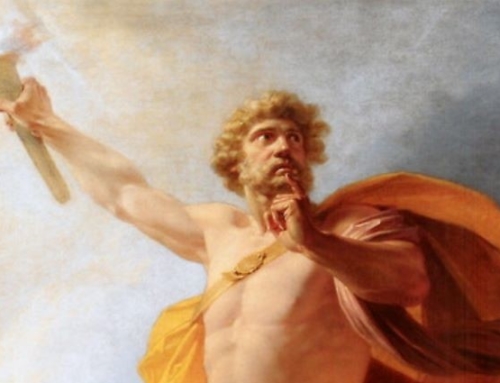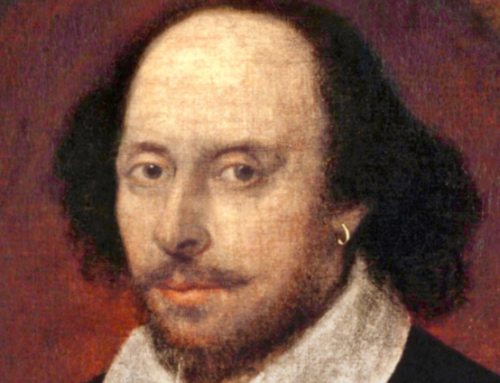Perhaps it could be argued that the English monarch is nothing but an effectively powerless figurehead and that, therefore, his or her words are of little consequence. The real power resides with Parliament, not with the Monarch. Not so, I would reply. Or at least not necessarily so.
 I honestly cannot remember the last time that I felt inspired to praise a mainstream politician in anything but a halfhearted manner. To be sure, were I from Hungary, I’d be enthusiastic in my support of Viktor Orbán, that country’s forthright and generally sagacious head of state. From a global perspective, however, the Prime Minister of a nation of around ten million people, sandwiched between Austria and Romania, is not destined to turn the tide of globalism, for all his valiant swimming against it. Imagine my surprise, therefore, when a head of state of one of the world’s major powers spoke with a wisdom that is all too rare.
I honestly cannot remember the last time that I felt inspired to praise a mainstream politician in anything but a halfhearted manner. To be sure, were I from Hungary, I’d be enthusiastic in my support of Viktor Orbán, that country’s forthright and generally sagacious head of state. From a global perspective, however, the Prime Minister of a nation of around ten million people, sandwiched between Austria and Romania, is not destined to turn the tide of globalism, for all his valiant swimming against it. Imagine my surprise, therefore, when a head of state of one of the world’s major powers spoke with a wisdom that is all too rare.
The words of wisdom were delivered in a speech, broadcast on Christmas Day, which was filled to the brim with good things—what might be called, considering its timing, tidings of comfort and joy. Here are a few gleanings from the heartwarming and edifying address:
I often draw strength from meeting ordinary people doing extraordinary things: volunteers, carers, community organisers and good neighbours; unsung heroes whose quiet dedication makes them special. They are an inspiration to those who know them, and their lives frequently embody a truth expressed by Mother Teresa, from this year, Saint Teresa of Calcutta. She once said: “Not all of us can do great things. But we can do small things with great love.”
Can this be true? Can a head of state of a major world power speak with what appears to be genuine humility about the sacrifices of ordinary people, even quoting Mother Teresa for good measure? Yes indeed, and more to the point, it gets better:
But even with the inspiration of others, it’s understandable that we sometimes think the world’s problems are so big that we can do little to help. On our own, we cannot end wars or wipe out injustice, but the cumulative impact of thousands of small acts of goodness can be bigger than we imagine.
Can we really believe that the head of state of one of the most powerful countries in the world is extolling the principle of subsidiarity—the principle that individuals, families, local communities, charities and churches can change society for the better whereas big and burdensome governments tend to make the big problems even bigger? There was, for instance, no suggestion that the world should be changed by giving even more power to globalist monstrosities, such as the United Nations or the European Union. Absolutely not. This head of state seems to insist that the world needs to be changed locally, at the grassroots level, by little acts of love by individuals serving their local communities. Where on earth can this political leader be getting the inspiration for such a sound political philosophy? The answer is in the following sentences from the speech itself:
At Christmas, our attention is drawn to the birth of a baby some two thousand years ago. It was the humblest of beginnings… Jesus Christ lived obscurely for most of his life, and never travelled far. He was maligned and rejected by many, though he had done no wrong. And yet, billions of people now follow his teaching and find in him the guiding light for their lives. I am one of them because Christ’s example helps me see the value of doing small things with great love… The message of Christmas reminds us that inspiration is a gift to be given as well as received, and that love begins small but always grows. I wish you all a very happy Christmas.
Hearing these words, I felt a glow in my heart, not merely because of their goodness and truth but because they were uttered by the head of state of my very own native land. I am not referring to British Prime Minister, Theresa May, but to Her Majesty Queen Elizabeth II, who said the aforementioned words in her annual Christmas address to the nation and the Commonwealth. My heart warmed to hear a Christian ruler of an ostensibly Christian nation confess her Christian faith so unabashedly, in spite of the atmosphere of knee-jerk political “correctness” that pervades British culture. I was also encouraged by the “small is beautiful” political philosophy of her words, which were certainly subsidiarist, at least implicitly if not necessarily explicitly.
Perhaps it could be argued that the Queen is nothing but an effectively powerless figurehead and that, therefore, her words are of little consequence. The real power resides with Parliament, not with the Monarch. Not so, I would reply. Or at least not necessarily so.
The fact that the Queen can influence events in a powerful and perhaps a decisive way was illustrated by her tacit intervention in the Brexit campaign, in which her support for British withdrawal from the tyranny of the European Union was evident. It is true that Her Majesty has generally chosen to remain aloof and distant from politics but the potential power that she and her successors hold is still immense. According to the royal prerogative which she still possesses, the reigning monarch has the right to veto Parliamentary bills, withholding royal assent so that they cannot become law. But isn’t such power or such a “prerogative” undemocratic and therefore indefensible? How can a believer in democracy countenance the political power of a monarch? These are good questions, to be sure, which go to the paradoxical heart of the British Constitution and the philosophical heart of the nature of Monarchy itself. They should, therefore, be answered.
I would argue, as a believer in both democracy and monarchy, that the two can coexist and, furthermore, that they do coexist in the present constitution of the United Kingdom. What is more, I would even go so far as to argue that an increased involvement by the monarchy in the political affairs of the nation would actually make the UK an even more democratic nation. Such a statement is so shocking to modern sensibilities and especially to American sensibilities that I’d better explain myself before I am dragged from the room as a madman or a heretic.
This is how the balance of power between Parliament and the Monarch serves democracy:
Since much of the power of the Monarch has devolved to Parliament, the Monarch is always in a very delicate position. If she defies Parliament, the politicians will resolve the consequent constitutional crisis by taking even more power from her, such as her royal prerogative to refuse assent to Parliamentary bills, or perhaps by abolishing the monarchy altogether. The Monarch’s power is, therefore, severely limited. As such, she only dare defy Parliament if she is sure that the people will be with her. If she resists universally unpopular bills, she will serve as a democratic check on unrepresentative political decisions. If a sufficient majority of the people agree with her, probably at least two-thirds in practice, Parliament will not dare to take on the united front of Queen and People. This is a power that Queen Elizabeth has chosen not to use. It is, however, there to be used if she or her successors care to wield it. It is, furthermore, a check on the power of politicians that is truly democratic because it can only be successful if the majority of the people agree with its use on any particular issue. Without the will of the people behind her, the Monarch can do nothing; with them she can rein in irresponsible and unrepresentative politicians.
Can Monarchy and Democracy coexist? You better believe it!
This essay was first published here in December 2016.
The Imaginative Conservative applies the principle of appreciation to the discussion of culture and politics—we approach dialogue with magnanimity rather than with mere civility. Will you help us remain a refreshing oasis in the increasingly contentious arena of modern discourse? Please consider donating now.
The featured image courtesy of PBS.







QE II always comes across as a more influential version of one’s mother, and that wisdom springing from a profoundly seated faith is especially evident in this year’s speech, as Mr Pearce so rightly points out. When one passes a certain age, one tends to care less and less for others’ potential reactions, and simply spits out that which one knows to be true – my mother certainly did.
Small, human scale, grass roots organization and charity, it’s always been around, but we need at times a reminder of its importance, and with this coming at Christmas from a beloved “figurehead”, we might entertain a hope that some will be inspired to action, among both leaders and populace. Let’s call it the Elizabethan Subsidiarity Movement.
At certain points in US history, we have had that same security that a beloved monarch conveys. It’s called “statesmanship,” and it works the same way that “majesty” does. We have in recent years lamented the lack of “leadership,” but what we really mean is that statesmanship which has the power to unify, to calm, to inspire, and even to bestow identity. Not all of England’s monarchs have had this kind of power. It isn’t hereditary. It’s a grace, bestowed on some monarchs, some popes, and some statesmen. It would be as much a mistake to romanticize it (by using terms like “royal blood” for example) as it would be to minimize its very real power.
I agree. Will we in the US ever have another opportunity to vote for a President who is also a true statesman? I hope so, but I’m not optimistic given the trajectory of our politics.
Her Majesty, Good Queen Bess, God Bless Her, is no ordinary monarch. Do not forget as lass, she learned to drive a lorry and change a tire. She is more acquainted with the Commoners than one might think. She is also her Father’s Daughter, and George VI had an ability to connect with people and yet maintain his royal reserve. (Unlike his predecessors, he was more humble than they, an amazing result of his speech impediment.)
America could do worse than to ask her to take over, but when we consider her successor will be Charles III, the spirit recoils.
Well, if Prince Charles becomes head of the monarchy you might have a different opinion of democracy and monarchy. 😉
I’ve heard of few of the Queen’s Christmas messages, and I’ve been touched. She’s very inspirational. God bless her. May she be with us for many more years.
This essay reminds me of a passage I read today in “Vladivostok Sunrise,” the newsletter from the Mary Mother Of God Mission in Vladivostok, which is reviving the Catholic Church in Eastern Russia after 70 years of institutionalized atheism. I quote the passage below, written by an American man who visited there recently. Good food for thought.
“Watching the Sisters and Brothers serve others with such joy was a humbling experience for us. We were touched at their ability to be content in giving to others even in the small
things. I often sit at home and become frustrated because I can’t make big changes to the world. Yet the Sisters and Brothers here are happy and at peace in being Christ in the little things. For example, Sister Faustina visits one orphanage in Vladivostok. In that orphanage she visits the children in one classroom; there are many classrooms. She spends only a few hours a week with them. Yet she makes a difference in the lives of those
children in a small and personal way. She does the best she can do in the time that she has. It became much clearer to me that it’s not about making grand noteworthy changes in the world. It’s about acting like Christ every day in our individual encounter with others, and being satisfied with the small subtle changes that take place around you.”
The problem with our current system of Democracy is that it gives too much power to those who influence public opinion through their control of the mass-media. No mere political system will in itself ever create Utopia, but if we must decide on Democracy as our best option it can only work reasonably on a local scale.